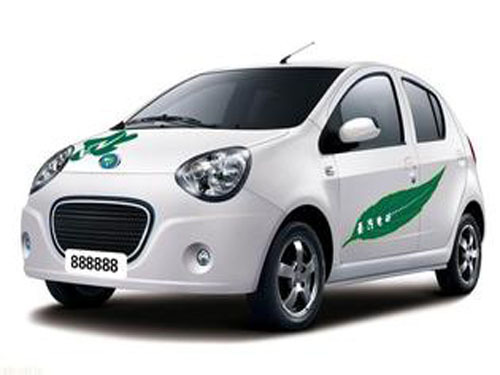
According to information from Rio de Janeiro, Brazil, tenders for the “Car Sharing Service†project jointly invested by BYD and PricewaterhouseCoopers and the Rio City Government will be launched within the year. If all goes well, Rio plans to invest up to 300 electric vehicles for this project next year to meet the growing demand for public transport facilities.
"Car sharing" is a service similar to car rental. It allows multiple people to share a car in one day, and the relevant management company is responsible for coordinating the time of use of the vehicle. Antonio Andrade, the director of the municipal traffic executive department, told this reporter that one of the advantages of this "car sharing" model is that it is economical and helps reduce traffic pressure. The other is very environmental protection.
Since the end of 2013, the Chinese brand BYD has gradually become a rising star in the automotive market in Brazil, successfully piloted in major Brazilian cities such as Brasilia, São Paulo, El Salvador, Rio de Janeiro, and the operating data show that this is pure The operating cost of electric buses is reduced by 75% to 81% compared to traditional fuel buses. Due to its advantages of cleanliness, environmental protection and affordable prices, the Brazilian government has been encouraging and supporting domestic companies to produce electric vehicles in recent years. At the same time, it welcomes multinational companies to set up factories in Brazil and hopes to realize the localization of the electric vehicle industry.
Despite the government's efforts to promote, but the pace of promotion of electric vehicles in the Brazilian market is still very slow. In Brazil, automotive energy is mainly pure ethanol and mixed gasoline containing 25% alcohol concentration. Because the Brazilian government gives great preferential taxation, ethanol prices are much cheaper than gasoline, so Brazilian consumers are more inclined to buy ethanol cars, which makes the country's new energy vehicle penetration rate is high, the new car sold every year About 80% are green energy vehicles that can use ethanol fuel. In contrast, electric cars are basically a new thing, and the current level of acceptance is still relatively low.
In an interview with this reporter, the Brazilian Vágas Foundation’s research institute Alosio Campero said that electric vehicles have not yet found their own development model in Brazil, unlike the ethanol market that is already very mature. The electric car manufacturing industry has not yet formed in Brazil. At present, Brazil has only a small number of imported models and lacks supporting infrastructure. For example, charging piles are rarely visible in the city, and the government’s supportive policies for electric vehicles are still on the surface.
However, Antonio is optimistic about the development prospects of electric vehicles. “From the viewpoint of Brazil’s energy consumption structure, electricity accounts for the second largest proportion, of which hydropower accounts for 77% of Brazil’s total power supply, which is a way to explore new energy use in the future. Provided protection."
In July last year, BYD announced that it will invest in the construction of an electric bus and iron battery plant in Brazil, and set up an R&D center and a prototype vehicle manufacturing center to radiate throughout Latin America. Brazil’s “São Paulo State†commented that for manufacturing in China, Brazil offers a market full of opportunities because both Chinese companies such as BYD, JAC and the traditional big-name Tesla are “new people†in Brazil. Whoever can grasp the market trend and strive for policy support will be able to occupy a place in the Brazilian electric vehicle market.
It is a main Plasticizer used mostly in plastic processing and has excellent comprehensive properties.
It is widely used in the processing of polyvinyl chloride, vinyl chloride copolymer and cellulose Resin, and in the manufacture of thin films, artificial leather, wire and cable sheets, plates, mouldings, plasticizers, etc.
This product can also be used as a softener for synthetic rubber such as NBR. It can improve the resilience of products, reduce the compression permanent deformation, and has no effect on vulcanization of rubber.
80%~90% of DOP is used in the PVC industry. Others are used in rubber, recycled plastics, lubricants, adhesives, coatings, macromolecule additives, softeners for printing ink and capacitor oils. They can also be used in polyvinyl acetate, polyvinylidene chloride and so on.
Dioctyl Phthalate,Electrical Grade Dop,Food Grade Dop,Industrial Grade Dop
HENAN JINHE INDUSTRY CO.,LTD , https://www.hnironoxide.com